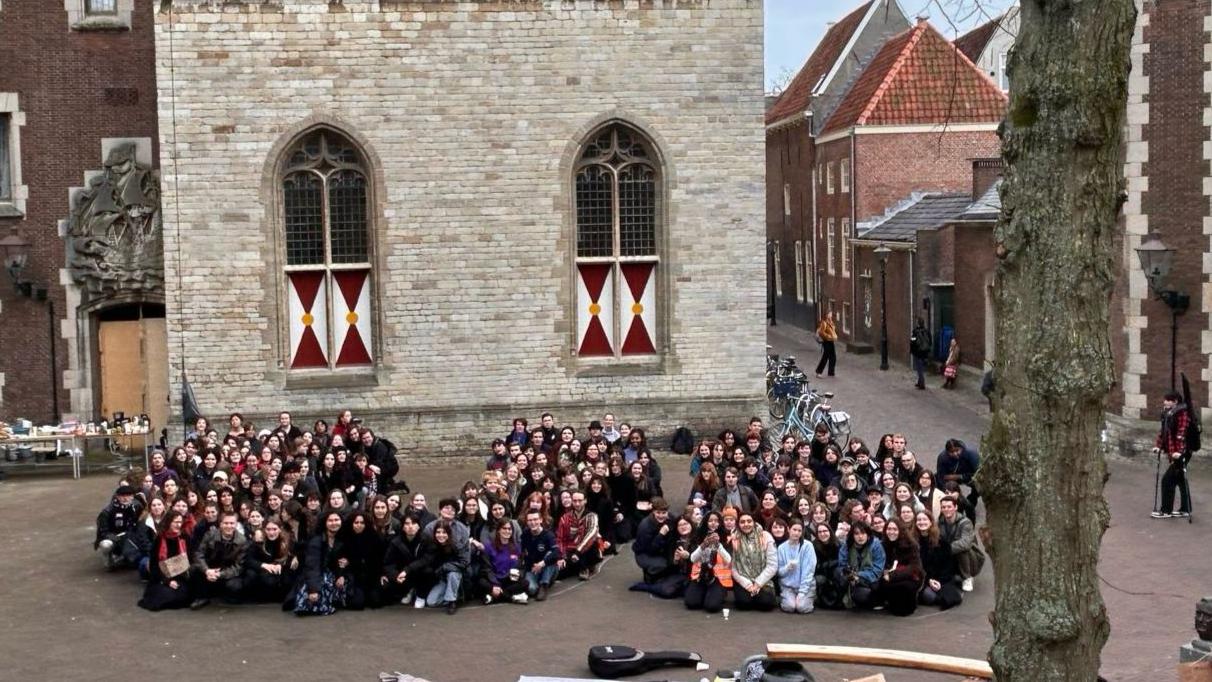Open letter from UCR alumni and parents
'Students should get part of their tuition fees back'

According to the letter, UCR students are between a rock and a hard place. The curriculum will go through major changes from September onwards and students have no choice but to participate in the new programme or leave UCR. This means that current students will not be able to complete their Bachelor's degrees as they had initially planned.
In their view, the debate surrounding the reorganisation “completely ruined” the second semester, so much so that they believe students should receive financial compensation for the tuition fees paid, which amounted to 4,610 euros for European students and 10,910 euros for students from countries outside the European Economic Area.
Major shock
UCR is struggling with financial problems, partly due to a decline in student numbers and an inefficient organisational structure. The board of University College Roosevelt presented a reorganisation plan in February. The curriculum will suffer significant losses and shift its focus to six themes, a measure that goes hand in hand with substantial budget cuts. In February, 21 UCR employees were told they were being dismissed.
This came as a shock to many students, graduates and parents, who don't think the new programme is as good as the current one. In addition, students have chosen UCR for a specific programme, which the college can no longer deliver.
In the letter, the group demands detailed information about the background and considerations behind the reorganisation. They do not understand why experienced lecturers have been made redundant while lecturers with temporary contracts have been allowed to stay.
Furthermore, the authors question the institution's approval by the NVAO education inspector, as he based his assessment on the old curriculum. They also want to know to what extent Utrecht University participated in the reorganisation process, considering UCR is formally under the auspices of UU. They also wonder to what extent students and staff were bound by confidentiality throughout the reorganisation process. The authors have submitted a freedom of information request to obtain all documents related to the reorganisation.
Fewer students
The UCR board has already sent an initial reply explaining how the reorganisation process took place and why certain choices were made. According to them, NVAO was informed in advance about the changes. UCR also states that UU is only an advisor, as it is not financially responsible for UCR. Finally, UCR will not comply with the freedom of information request because it is a foundation and therefore not obliged to provide the requested documents.
Spokesperson Marieke van de Laar says that the institution has talked to 90 UCR students about how to ensure a smooth transition from the old programme to the new one. According to her, only “a handful” of students have decided to drop out. The board has not yet discussed the possibility of compensating current students for the turmoil in the second semester.
Van de Laar says that the number of applications for the next academic year has been lower than in recent years. She believes this is partly due to the Internationalisation in Balance Act, a bill that might be causing international students to be reluctant to choose an English-taught programme in the Netherlands. The debate surrounding UCR's reorganisation may have also played a role. It is impossible to know exactly how many first-year students will enrol in UCR in the next academic year, as the application process has not yet been completed. However, UCR considers the decline to be temporary and has already taken it into account in its reorganisation plan.